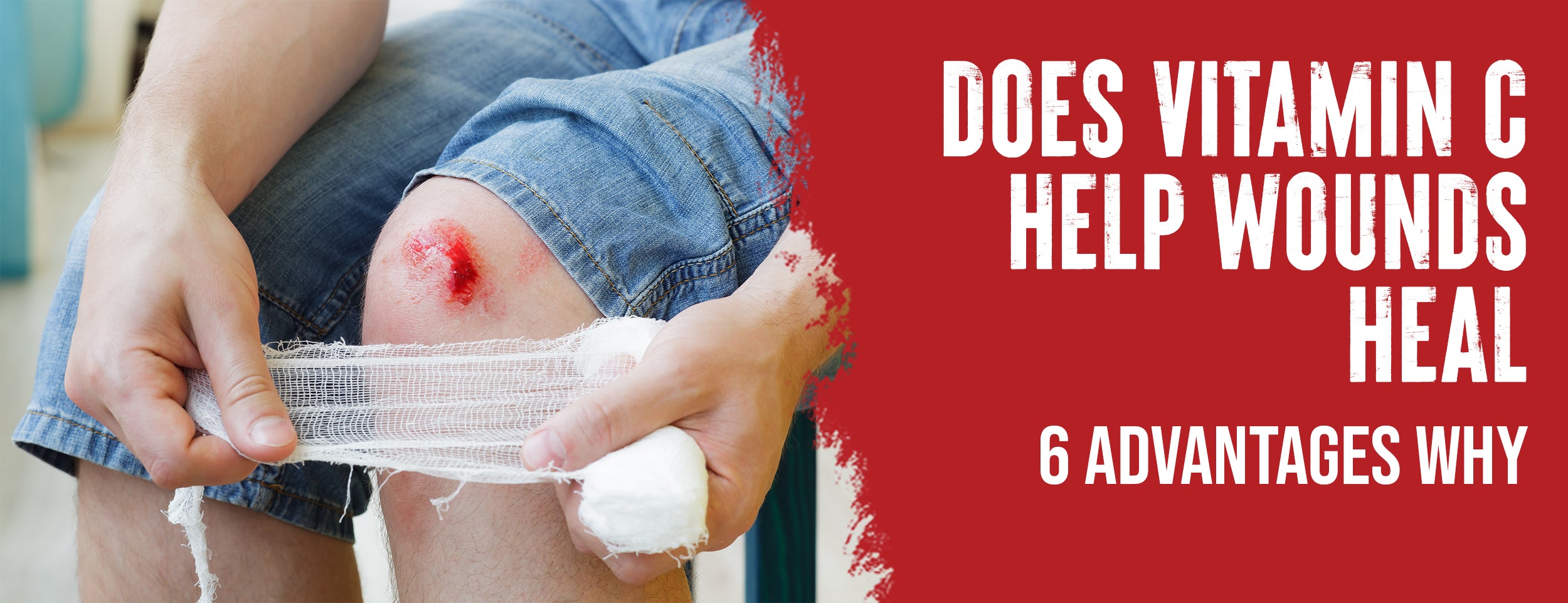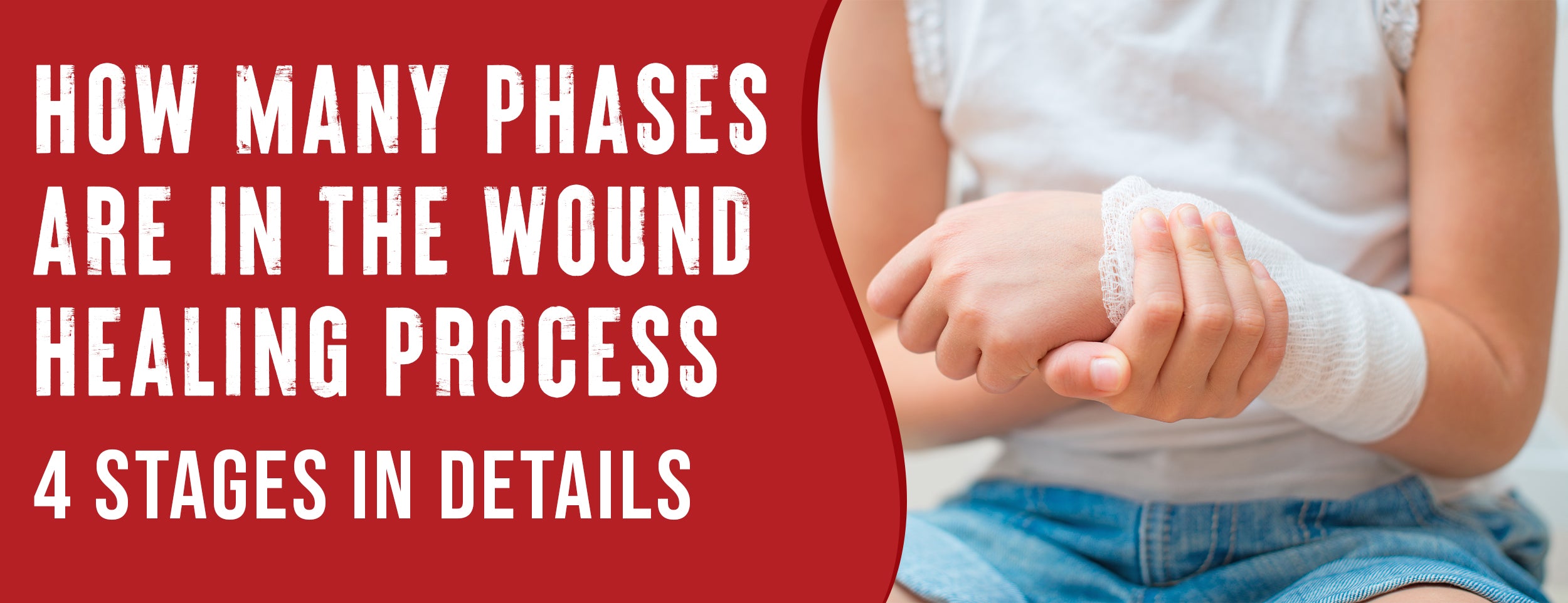If a wound does not heal, it can lead to chronic wounds or even dehiscence, which exposes underlying organs and tissues. A wound infection can develop, which causes inflammation, pus, and fever and may even spread to your bones.
Zinc deficiency may delay wound healing since zinc plays a crucial role in protein and collagen synthesis, tissue growth, and healing. Other nutritional factors affecting wound healing include protein, energy, vitamin C, vitamin A, vitamin E, vitamin B complex, iron, and copper.
This blog post will discuss the significance of vitamins and minerals in healing and highlight some nutritional deficiencies that can impede wound healing.
Which Nutritional Deficiency May Delay Wound Healing: 5 Factors
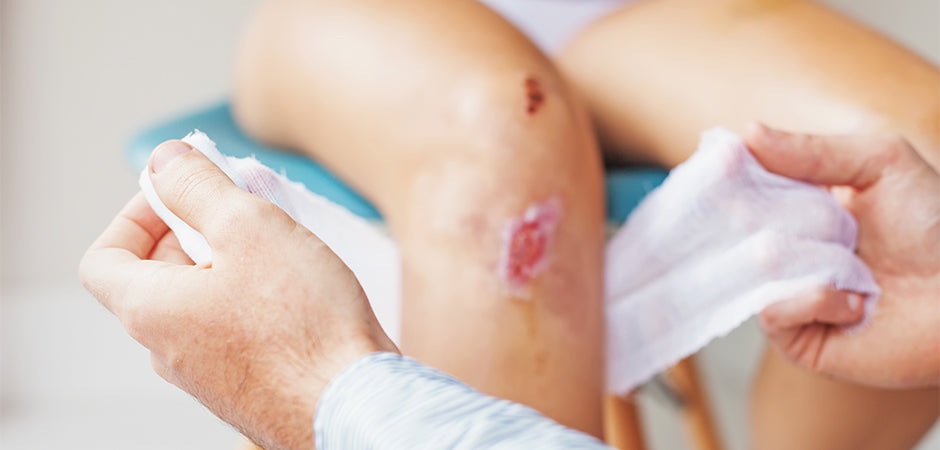
Wound healing requires the collaboration of cells, tissues, and nutrients. The body's ability to repair damaged tissues depends on energy and specific nutrients. Nutritional deficiencies can impair healing, leading to prolonged recovery, infections, and complications. This exploration highlights the role of nutrients in wound healing and the impact of nutrient deficiency.
Role of Energy in Wound Healing
Energy is a fundamental requirement for wound healing. Several cellular and metabolic processes require energy, including cell division, collagen synthesis, and immune responses.
When the body does not have enough energy, it cannot sustain the high demands of tissue repair, and wound healing may slow down or stop entirely. To facilitate optimal wound healing, wound patients need to consume adequate calories.
Importance of Amino Acids and Proteins
The building blocks of tissues are proteins and amino acids, such as skin, muscles, and bones. Among their many functions, they play a critical role in wound healing, collagen synthesis, immune function, and angiogenesis (formation of new blood vessels).
When amino acids and proteins are deficient, wound healing is delayed, collagen synthesis is impaired, and immune response is compromised.

The Role of Carbohydrates in Wound Healing
The body needs carbohydrates for energy and wound healing. Glucose, the primary energy source for cells, is required at high levels during the inflammatory and proliferative stages of wound healing.
Insufficient carbohydrate intake can reduce glucose availability, impede wound healing, and lead to infection, inflammation, and delayed immune response. To promote optimal wound healing, patients with wounds require adequate carbohydrates, such as whole grains, fruits, and vegetables.
How Fats Facilitate Wound Healing
For wound healing, fats provide energy, produce hormones, and support cell membrane synthesis. The omega-3 and omega-6 fatty acids, in particular, support immune function, reduce inflammation, and enhance tissue regeneration during wound healing.
The lack of essential fatty acids can impair wound healing, increase inflammation, and compromise immunity. Oily fish, nuts, and seeds are necessary for wound healing.
The Role of Vitamins and Minerals in Wound Healing
Wound healing requires vitamins and minerals as cofactors for many cellular and metabolic processes. Vitamin C, for example, is necessary for collagen synthesis, vitamin D is needed for immune function and epithelial cell growth, and zinc is essential for cell proliferation. These micronutrient deficiencies can prevent wound healing, increase infection risk, and prolong recovery.
7 Effects of Nutrient Deficiency On Wound Healing
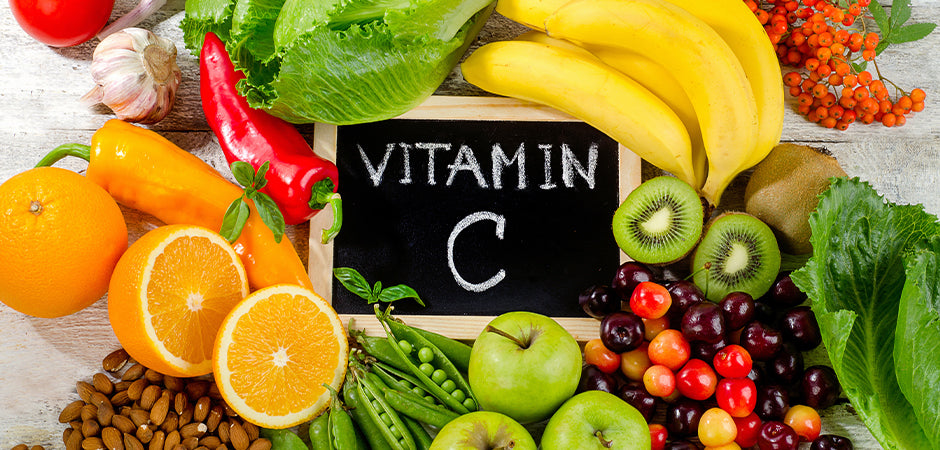
Nutritional deficiencies can hinder wound healing, affecting the body's ability to recover efficiently. It is crucial to address these deficiencies to promote optimal healing. We will inspect vitamin C, zinc, iron, vitamin A, vitamin D, and L-arginine deficiency and their impact on wound healing and other nutritional deficiencies that can affect the healing process.
Vitamin C Deficiency Affects Wound Healing
Collagen synthesis is aided by vitamin C. A vital component of the immune system, it also has anti-inflammatory properties. Vitamin C deficiency can cause:
- Delayed wound healing.
- It impaired collagen synthesis.
- Increased risk of infections.
Zinc Deficiency and Impaired Wound Healing
Many physiological processes depend on zinc, including cell division and growth. The immune system relies on it for wound healing. Zinc deficiency has been shown to impair wound healing because it affects many biological mechanisms. A zinc deficiency can cause.
- Delayed cellular proliferation.
- It reduced collagen synthesis.
- Impaired immune response.
- Delayed epithelialization.
The Role of Iron in Wound Healing
Iron is another essential mineral for wound healing. It is involved in forming hemoglobin, which carries oxygen to tissues, including wound sites. Oxygen is crucial for cell metabolism and is critical in collagen synthesis. A lack of iron can cause:
- Anemia
- Delayed wound healing.
- Weakened immune response.

Vitamin A Deficiency and Poor Wound Healing
Vitamin A, a fat-soluble nutrient, supports immune function, maintains healthy vision, and promotes skin health. It is also essential to facilitate wound healing through epithelial cell growth and differentiation. Insufficient intake of vitamin A can cause:
- Delayed wound closure.
- It impaired collagen production.
- Increased risk of infections.
Insufficient Vitamin D and Delays in Wound Healing
Bone health depends on vitamin D, as does the immune system. It is also necessary for proper wound healing because it helps regulate cell proliferation and differentiation. A deficiency in vitamin D can contribute to:
- Delayed wound healing.
- Increased inflammation.
- Decreased antimicrobial activity.
The Role of L-Arginine in Wound Healing
L-arginine is an essential amino acid critical to healing damaged tissues. Precursor of nitric oxide, which involves many biological processes, including wound healing. L-arginine deficiency can cause:
- Impaired wound healing.
- Decreased collagen synthesis.
- Reduced immune function.
Curcumin and its Effect on Wound Healing
Curcumin is a turmeric compound with potent anti-inflammatory and antioxidant properties. It also has been shown to improve wound healing by:
- Promoting collagen synthesis.
- Enhancing angiogenesis.
- Reducing inflammation.
Nutritional Strategies to Enhance Wound Healing: 2 Guidelines

When someone is deficient in specific nutrients, it can significantly affect their immune system and the body's ability to repair itself. Inadequate nutrition can also slow the production of new cells, collagen, and other connective tissues required for proper wound healing. Let's dive into some crucial information on how dietary guidelines and clinical interventions can help optimize wound healing.
Dietary Strategies for Optimal Wound Healing
The proper diet can supply all the nutrients required for optimal wound healing. Some essential dietary recommendations are:
- Consume adequate lean protein, such as chicken, fish, or tofu. Protein-rich diets promote collagen synthesis, which is essential for wound healing.
- Vitamin C and zinc-rich fruits and vegetables should be part of your daily diet. Both these nutrients play a crucial role in wound healing.
- Consume enough calories to give your body the energy to heal wounds without gaining or losing weight.

Clinical Interventions for Improving Nutritional Status
Clinicians may recommend various interventions to improve nutritional status in patients with delayed wound healing, some of which include:
- Providing enteral or parenteral nutrition: High-calorie nutritional supplements or tube feeding may be required where patients cannot consume enough calories orally.
- Treating underlying nutrient deficiencies: Blood tests can identify and, if present, appropriate supplementation or dietary changes can be made.
- Providing Nutrition Education: Educating patients on proper nutrition can make them aware of the importance of a healthy diet and help them change and promote wound healing.
Conclusion
Nutritional deficiency plays a vital role in affecting the healing of wounds. Specifically, a lack of zinc can delay and exacerbate the healing process. It is of utmost importance to prioritize the nutritional intake to support and optimize wound healing effectively.
This is possible by adhering to dietary guidelines that promote optimal wound healing, incorporating nutritional supplementation, and using clinical interventions to enhance nutritional status.
Addressing dietary deficiencies can ensure proper wound healing and minimize the risk of complications. Take control of your health and provide your body with the nourishment it needs for optimal recovery.

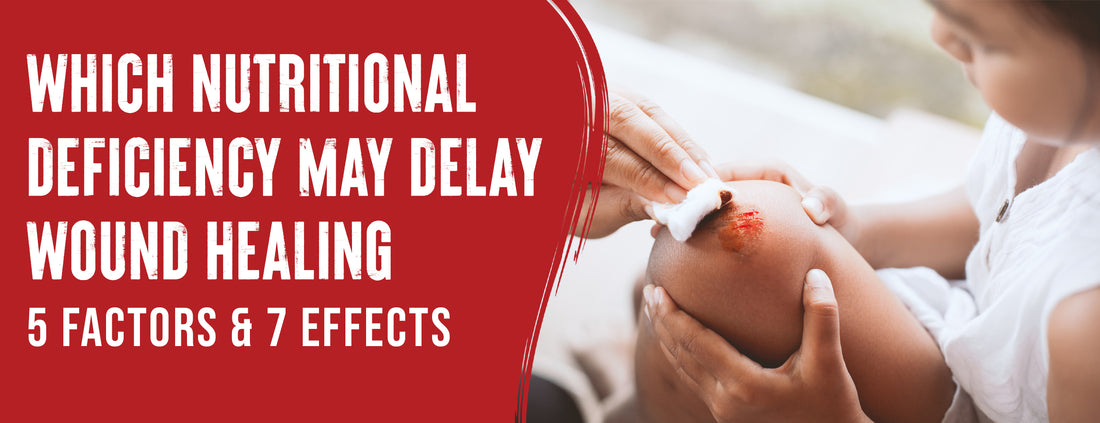








![11 Types & 7 Benefits of Wound Ointments [Most Effective]](http://drnumb.com/cdn/shop/articles/What_Ointment_Is_Best_For_Wound_Healing__14_Types_7_Benefits.jpg?v=1716200317)
